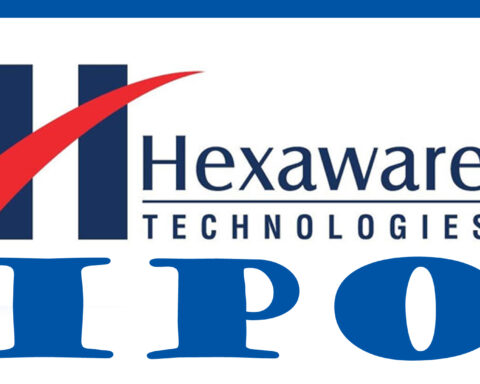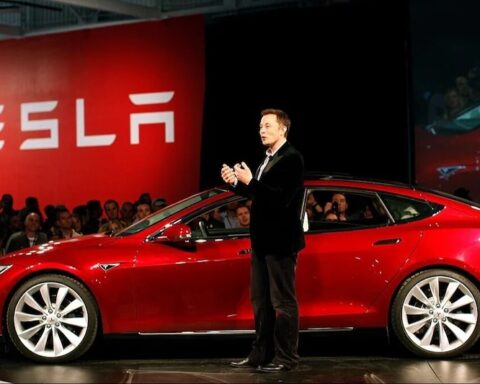Mumbai/ TNF
Hyundai Motor India has made headlines with its massive initial public offering (IPO) of ₹27,870 crore, which saw an extraordinary level of interest from institutional investors. On the last day of bidding, October 17, the IPO was oversubscribed more than two times, reflecting a strong appetite among QIBs. According to data from the National Stock Exchange (NSE), investors submitted bids amounting to ₹23.63 crore, significantly exceeding the offered amount of ₹9.98 crore. The company’s shares are scheduled to be listed on the stock exchanges on October 22, marking a significant milestone in Hyundai’s growth trajectory in India.
The overwhelming response from institutional investors is a positive signal for Hyundai, which is the second-largest automobile manufacturer in India, following Maruti Suzuki. The Qualified Institutional Buyer (QIB) segment saw a remarkable 6.97 times subscription, highlighting the confidence institutional players have in the company’s future prospects. However, the enthusiasm was not mirrored in the retail investor segment, where demand was notably subdued.
Several factors have contributed to the lukewarm interest from retail investors. Analysts have pointed out that concerns over high valuations, declining shares in the grey market, and a general downturn in demand in the auto sector during the festive season have made retail investors hesitant. G. Chokalingam, the founder and research head of Economics Research Private Limited, emphasized that previous experiences with large IPOs have left retail investors wary. Many of these IPOs have underperformed after listing, leading to caution among potential investors.
The sentiment among retail investors was further impacted by a decline in passenger vehicle sales. Chokalingam noted that although Hyundai has focused on the SUV (Sports Utility Vehicle) segment, which had previously seen double-digit growth, this growth rate has now slipped to single digits. This slowdown raises concerns about the overall health of the auto industry, particularly in a crucial festive season when many consumers make significant purchases.
Adding to the challenges, market analyst Ambrish Baliga highlighted that Hyundai’s decision to announce the number of shares to be issued shortly before the bidding began created speculation about the size of the IPO. Initially, expectations were that the IPO would be around ₹25,000 crore. However, the final size of ₹28,000 crore resulted in an increase of about 11-12% in pricing, which may have deterred some retail investors. As a result, the grey market price for Hyundai’s IPO fell by over 1% on the last day of bidding, indicating growing concerns about its future performance.
Despite the mixed sentiments, Hyundai Motor India has a robust presence in the Indian automobile market, with a significant market share of approximately 15% in the passenger vehicle segment. The company has built a strong reputation for quality and innovation, making it a popular choice among consumers. As Hyundai gears up for its IPO listing, the company aims to use the proceeds to strengthen its manufacturing capabilities, expand its product range, and enhance its customer service initiatives.
The festive season is usually a critical period for automobile sales in India, and the current economic climate adds another layer of complexity. While high inflation and rising interest rates pose challenges, the government’s push towards electric vehicles (EVs) and sustainable transportation could open new avenues for growth. Hyundai has already made strides in this direction, with plans to launch electric vehicles that cater to the growing demand for greener options.
The response to Hyundai’s IPO will likely serve as an indicator of investor sentiment in the broader automotive sector. Analysts are closely watching the situation, as a successful listing could boost confidence among investors and possibly lead to increased interest in future IPOs from other companies in the automotive space. Conversely, a lackluster performance could raise red flags, leading to further caution among retail investors.
As the listing date approaches, Hyundai’s management team is optimistic about the company’s future. They believe that the IPO will not only provide the necessary capital for expansion but also enhance the company’s visibility in the market. By being listed on the stock exchange, Hyundai aims to attract more investors, fostering a sense of transparency and accountability that comes with being a publicly traded company.
The automotive landscape in India is rapidly evolving, with manufacturers needing to adapt to changing consumer preferences and technological advancements. Hyundai has a solid track record of innovation and adaptability, which bodes well for its future prospects. With the recent surge in interest from institutional investors, the company seems poised to navigate the challenges ahead effectively.
In conclusion, while Hyundai Motor India’s IPO has garnered strong interest from institutional investors, the mixed sentiment among retail investors reflects broader concerns about the automotive industry’s health. As the company prepares for its listing on October 22, the performance of its shares will be keenly observed by market participants. A successful listing could pave the way for future growth and inspire confidence among investors in the Indian automotive sector, while a disappointing performance may lead to increased caution. Ultimately, Hyundai’s journey in the public market is just beginning, and its ability to address investor concerns and capitalize on market opportunities will be crucial for its long-term success.













